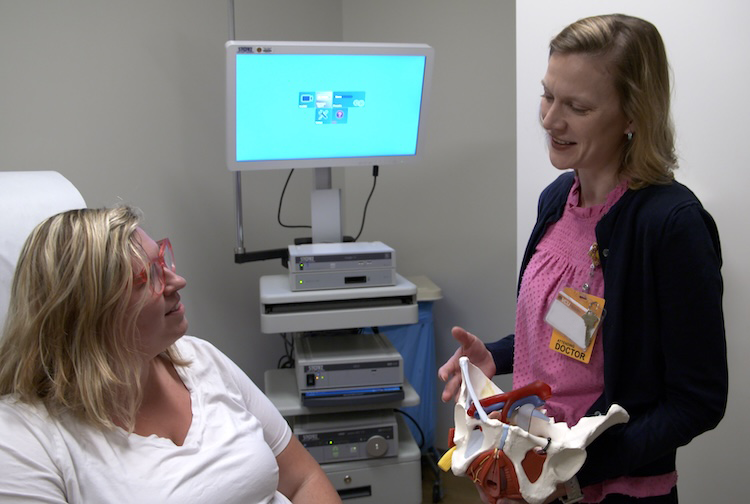Maternal fetal medicine: Advice for complicated pregnancies
January 22, 2020
“The major issue is to make sure there are no significant medical complications that would affect, in early pregnancy, the development of your baby,” he states. The important thing is to take a prenatal vitamin that contains the folic acid needed to reduce the risk of some types of birth defects.
If you have any significant medical concerns or significant questions about medication exposures, it is absolutely appropriate to talk to your OB-GYN first before trying to conceive.
Who needs to see an MFM physician?
The majority of young women who have babies never need to see an MFM physician, unless it's for an ultrasound. “The focus for MFM doctors is primarily related to ultrasound, prenatal diagnosis and dealing with medical complications of pregnancy,” notes Dr. Ramus. These complications may be related to the unborn baby or the mother.
Most prenatal care can be handled by the OB-GYN without any problems. Typically, MFM doctors only get involved when there are complications or potential risk factors. The most common pertain to blood pressure problems, both before pregnancy and during the pregnancy, and diabetes complications. MFM doctors are also very involved with patients expecting twins, triplets and other multiple births.
In general, if a woman considering pregnancy has a chronic medical condition, like lupus, her OB-GYN will refer her to an MFM doctor for a preconception consult. “We can try to optimize your care, optimize your medical regimen, prior to trying to have your baby,” Dr. Ramus assures.
Additional risk factors
There are two risk factors Dr. Ramus mentions in particular: age and obesity.
Today, it is not uncommon for young couples and young women to put off having children. Whether it's delayed for career issues or other reasons, Dr. Ramus says that it's perfectly fine, with a caveat. “Ultimately, as young women get into their mid-30s and later, it truly does complicate pregnancies. Not drastically, but it does have an effect,” he cautions. “Earlier is better, which is something to keep in mind.”
For patients concerned about their weight, Dr. Ramus advises tackling this issue first. “Obesity complicates everything, including pregnancies,” adds Dr. Ramus. “It might mean treatment or a dietary plan, even bariatric surgery. Those kinds of things might best be done before considering a pregnancy.”
Enjoying the pregnancy
Dr. Ramus encourages patients to enjoy their pregnancy and not get caught up in concerns they and their doctor have no control over. “There are so many things to be worried about and fearful about. We can choose to focus on those, or we can choose to focus on the developing life within us and nurturing that developing life.”
In conclusion, Dr. Ramus encourage pregnant women to listen to their body. “Being in tune with your body and listening to the clues your body gives you is something that becomes really important in having a happy and successful family,” he states.
Listen to a full interview with Dr. Ramus on maternal fetal medicine in this podcast. For more podcast episodes, find the “Healthy with VCU Health” podcast on any major streaming platform or visit the VCU Health Podcast library at vcuhealth.org/podcasts.




